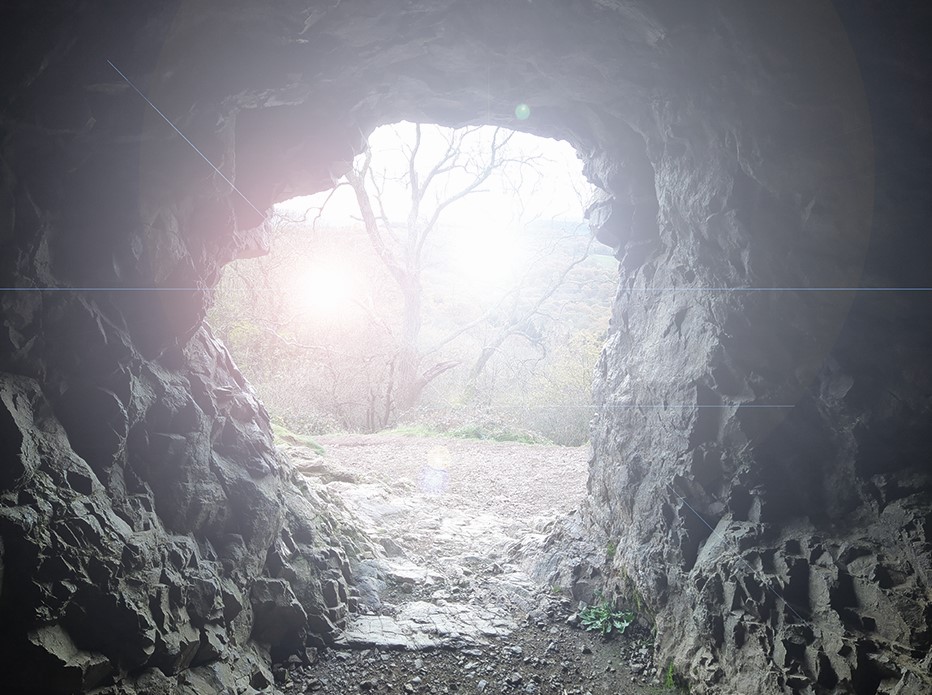THE Bible reveals to us the ultimate purpose of God in relation to the earth and ourselves. ‘Truly, as I live, and as all the earth shall be filled with the glory of the Lord’ (Numbers 14:21).
The beginning of the story tells us of our creation. Adam and Eve were placed in the Garden of Eden and God gave them a test, to develop their characters. ‘And the Lord God commanded the man, saying, “You may surely eat of every tree of the garden, but of the tree of the knowledge of good and evil you shall not eat, for in the day that you eat of it you shall surely die”’ (Genesis 2:16–17).
Paradise Lost
Until then there was what we may term ‘communion’ between humans and their Maker, but we soon learn that this happy state of affairs was marred by sin. We have the record of the sad story in Genesis 3. Adam and Eve took and ate the forbidden fruit, and at once realised that they had broken the law, and had incurred the penalty of death. What could they do to be saved? Nothing!
They instinctively felt that they had, by their own act, created a breach between themselves and God. They tried to hide from the presence of God. But that is not possible. Sentence was pronounced upon them. They could not avert the penalty of death, but in the mercy of God He did not abandon them in their predicament. He revealed to them that there would be a descendant of the woman who would undo the evil work of the serpent: ‘I will put enmity between you and the woman, and between your offspring and her offspring; he shall bruise your head, and you shall bruise his heel’ (v. 15). Thus is indicated that this ‘offspring’ would provide a way of escape from death.
Adam, for the time being, was condemned to a life of intensive work, ending in death. ‘By the sweat of your face you shall eat bread, till you return to the ground, for out of it you were taken; for you are dust, and to dust you shall return’ (v. 19). Thus briefly is summed up the ‘fall’ of humanity—alienation from God. It is into this state that all the descendants of Adam and Eve are born, and it is from this state that they need to be freed, redeemed, or saved.
Divine Redemption
The subsequent story of the Bible is concerned with this process of redemption of humanity. In its fulfilment, it will achieve the purpose of reflecting ‘glory to God in the highest, and on earth peace among those with whom he is pleased!’ (Luke 2:14).
Returning to Adam and Eve, we learn that ‘the Lord God made for Adam and for his wife garments of skins and clothed them’ (Genesis 3:21). This required an animal to be killed, which shows that redemption is on the basis of sacrifice. This was later illustrated in the Law which God gave through Moses (in the books of Exodus through to Deuteronomy), and it is declared explicitly in the New Testament: ‘without the shedding of blood there is no forgiveness of sins’ (Hebrews 9:22).
Adam and Eve had become sinners, though pardoned ones, and they could no longer be permitted to remain in Paradise. God ‘drove out the man, and at the east of the garden of Eden he placed the cherubim and a flaming sword that turned every way to guard the way to the tree of life’
(Genesis 3:24). To have permitted them in their sinful condition to live for ever would have been a calamity indeed, and divine wisdom prevented it.
From this short survey of the early history of humankind we have seen how ‘sin came into the world through one man, and death through sin, and so death spread to all men because all sinned’ (Romans 5:12), and that ‘the wages of sin is death’ (Romans 6:23). At the same time, divine mercy had given an indication of the means of reconciliation between God and humans.
As the Bible story unfolds, we see that Jesus Christ is the descendant of the woman who would provide this reconciliation, and the way for people figuratively to at last eat of the Tree of Life: ‘He who has an ear, let him hear what the Spirit says to the churches. To the one who conquers I will grant to eat of the tree of life, which is in the paradise of God’ (Revelation 2:7).
The Apostle Paul in his letters has thrown much light on the subject. ‘For as by a man came death, by a man has come also the resurrection of the dead’ (1 Corinthians 15:21). We ourselves are helpless, but as Jesus said, ‘God so loved the world, that he gave his only Son, that whoever believes in him should not perish but have eternal life’ (John 3:16). There are two options available to us: to perish, or to be given eternal life.
Christ himself is the ‘woman’s offspring’ —‘born of woman’ (Galatians 4:4), that is the virgin Mary (Luke 1:31). ‘There is salvation in no one else, for there is no other name under heaven given among men by which we must be saved’ (Acts 4:12). Jesus had the same human nature as his mother: ‘Since therefore the children share in flesh and blood, he himself likewise partook of the same things, that through death he might destroy the one who has the power of death, that is, the devil… Therefore he had to be made like his brothers in every respect, so that he might become a merciful and faithful high priest in the service of God, to make propitiation for the sins of the people’ (Hebrews 2:14, 17). ‘For we do not have a high priest who is unable to sympathize with our weaknesses, but one who in every respect has been tempted as we are, yet without sin’ (Hebrews 4:15).
The Perfect Man
The Gospel records that Jesus ’went throughout all the cities and villages, teaching in their synagogues and proclaiming the gospel of the kingdom and healing every disease and every affliction’ (Matthew 9:35). It was the blamelessness of his life and his exposure of their own corruption that incurred the hatred of the religious rulers, and in the end they organised his death. The Apostle Peter upbraided his fellow Jews with the enormity of their crime: ‘This Jesus, delivered up according to the definite plan and foreknowledge of God, you crucified and killed by the hands of lawless men’ (Acts 2:23).
Thus was fulfilled the promise in Eden (Genesis 3:15). Jesus was ‘bruised in the heel’, under the temporary power of death. But, as Peter continued, ‘God raised him up, loosing the pangs of death, because it was not possible for him to be held by it’ (v. 24).

By his resurrection and his attainment of eternal life, he has ‘bruised sin in the head’, because ‘we know that Christ, being raised from the dead, will never die again; death no longer has dominion over him’ (Romans 6:9).
Jesus offered himself a sacrifice for sin: ‘he entered once for all into the holy places, not by means of the blood of goats and calves but by means of his own blood, thus securing an eternal redemption’ (Hebrews 9:12).
Christ has been raised from the dead, the firstfruits of those who have fallen asleep. For as by a man came death, by a man has come also the resurrection of the dead. For as in Adam all die, so also in Christ shall all be made alive. But each in his own order: Christ the firstfruits, then at his coming those who belong to Christ
(1 Corinthians 15:20-23).
Being Born Again
By nature we are ‘in Adam’, perishing creatures, under the curse of death. What we need is a means of transfer out of Adam into Christ. Jesus said, ‘You must be born again’ (John 3:7). And therefore, wrote Paul, ‘if anyone is in Christ, he is a new creation
(2 Corinthians 5:17). ‘And you, who once were alienated and hostile in mind, doing evil deeds, he has now reconciled in his body of flesh by his death’ (Colossians 1:21–22). ‘For if while we were enemies we were reconciled to God by the death of his Son, much more, now that we are reconciled, shall we be saved by his life’ (Romans 5:10).
When does this ‘new birth’ take place? When we believe in Jesus Christ, accept him as our Saviour, and submit to baptism: ‘Do you not know that all of us who have been baptized into Christ Jesus were baptized into his death? We were buried therefore with him by baptism into death, in order that, just as Christ was raised from the dead by the glory of the Father, we too might walk in newness of life’ (Romans 6:3–4).
If we walk faithfully with him in newness of life, he will give to us eternal life when he returns: ‘To those who by patience in well-doing seek for glory and honour and immortality, he will give eternal life’ (Romans 2:7).
John Owler



